Dental Implant in Marrakech
Search and Compare the Best Clinics and Doctors at the Lowest Prices for Dental Implant in Marrakech
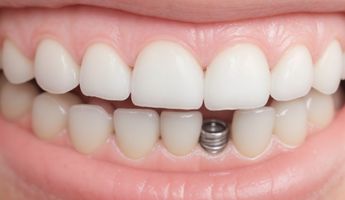
Find the best clinics for Dental Implant in Marrakech
With Medijump you can browse 2 facilities offering Dental Implant procedures in Marrakech. The cheapest price available is $695 in Marrakech. And for the cheapest price globally, prices start from $1 in Vietnam.
Dental Implant in Morocco
Price: $ 695
Dental Implant in Marrakech
Price: $ 695
Vietnam offers the best prices Worldwide
Price: $ 1
From 19 verified reviews
nait, 29 November 2019
Good experience, professional.
From 44 verified reviews
Saad Laalou, 16 March 2020
I have already done my care in this clinic and I highly recommend it, to one of the best dentists in Morocco Dr. MADANI, a vigilant doctor who masters his act from the beginning until the end of treatment with measurements and the precision required, a multidisciplinary clinic which adopts all the therapeutic fures of orthodontic esthetic prosthetics ... by adopting well on current dentistry (laser treatments, cfao ..) aiming at speed and excellence, a clinic which puts the concept of asepsis one of the big priorities always for the good progress of the act and the comfort of the patient, not to mention the staff of the clinic who are really nice, welcoming, and too adorable.
Compare Before & After Photos of _procedure_photos.phpDental Implant

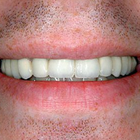
Front view


Front view
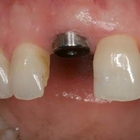
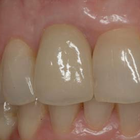
Front view
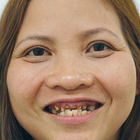

Front view

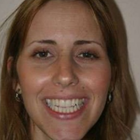
Front view
WHY US?
At Medijump, we're making medical easy. You can search, compare, discuss, and book your medical all in one place. We open the door to the best medical providers worldwide, saving you time and energy along the way, and it's all for FREE, no hidden fees, and no price markups guaranteed. So what are you waiting for?

Free

Best Price

Widest Selection

Risk-Free
What you need to know about Dental Implant in Marrakech

A dental implant is a medical device that provide support to artificial teeth. It's surgically placed into the jaw to act as a replacement for the root of a missing or damaged tooth, which in turn serves to hold a replacement tooth or bridge. It functions and looks much like a real tooth, restoring your ability to chew and improves your overall appearance. Dental implant surgery is considered as a better alternative to dentures or bridgework that does not fit well. It also offers a great option for people when they do not have enough natural teeth roots left to build denture or bridgework replacements.
Since dental implants eventually fuse with your jawbone over the span of several months, it won’t make noise, slip, or cause bone damage the way dentures or bridgework might. Dental implants also enable natural speech, look and feel like your own teeth, make eating easier, and improves your appearance. However, the surgery may involve several stages, and, in some cases, it may require two separate visits to the clinic to complete. Ensure to look for a specialist in a reputable clinic for the best results.
What is the cost of Dental Implant in Marrakech?
Price differences abound in Marrakech for Dental Implant based on the clinic, the proficiency of the surgeon, and the individual requirements of the patients. It's essential to realize that dental insurance usually doesn't cover the entire bill for this treatment, though it might cover a part. Several dental clinics provide finance schemes or payment alternatives to assist in easing the financial burden. For more precise cost estimates, reach out to your dental service provider or a nearby clinic.
What does a Dental Implant Procedure Involve?
Dental implant surgery generally requires several stages. Each stage may be performed under general or local anesthetic. The first stage is removing the damaged tooth. Then, if your jawbone is too soft or not thick enough, your dentist may perform bone grafting to create a more solid base for the implant. The bone graft may be natural (taken from another part of your body) or synthetic (a bone-substitute material). If you only need minor bone grafting, the implant surgery can be performed on the same day. However, if you need a significant amount of bone graft, the implant surgery may have to be postponed until the transplanted bone grows enough new bone to support the dental implant.
The next stage after the damaged tooth removal and bone graft (if you need one) is placing the dental implant. To do this, your dentist makes an incision to expose the bone and puts the metal implant post deep into the bone. At this stage, you will still have a gap where your tooth is missing. Your dentist will place a temporary denture for appearance. Once the metal implant post is placed, osseointegration begins. This is a process where the jawbone grows into the surface of the implant and can take several months to complete. After osseointegration is complete, your dentist will place the abutment, which is a small connector post that will hold your new tooth. The final stage, after the abutment is placed, is placing the crown, which is the tooth-looking part. You can choose between a removable crown and a fixed crown.
How Long Should I Stay in Marrakech for a Dental Implant Procedure?
The length of your stay in Marrakech for a Dental Implant depends on numerous considerations like the intricacies of the procedure, the quantity of implants required, and your personal recovery process. Each stage of dental implant surgery is done in separate appointments. After each appointment, you should be able to leave the hospital or clinic right away. However, you should stay in Marrakech for at least 2 weeks for completion of the work, the initial recovery time, and follow-up checkups.
What's the Recovery Time for Dental Implant Procedures?
The recuperation duration following a Dental Implant or dental implant operation can widely vary and is shaped by multiple aspects. Initial healing of the tissue might require only a handful of days, but complete osseointegration (the fusion of the implant with the jawbone) generally spans several months. This window could be extended for patients requiring auxiliary procedures such as bone grafts, or those with prevailing health issues that may impede the healing process.
Post-procedure, it's not unusual to experience a degree of discomfort, which could manifest as minor pain, swelling of your gums and face, skin and gum bruising, and slight bleeding. Such symptoms are a standard phase of the recovery process and should alleviate within a fortnight. In this interim, it's advisable to stick to a soft diet to not overload the implant site with undue pressure. Any strenuous physical exertion should be put off to circumvent potential complications.
Maintaining excellent oral hygiene is paramount to facilitate healing and stave off infection. Regular brushing and flossing, being particularly gentle around the surgical area, coupled with rinsing your oral cavity with warm saline water, can contribute to keeping the region hygienic.
What sort of Aftercare is Required for Dental Implant Procedures?
After each stage of surgery, you may have to eat soft foods. Since you may experience swelling, bruising, pain, and minor bleeding, your dentist will prescribe pain medications or antibiotics to help ease your discomfort. During your recovery period, you need to avoid smoking as it can contribute to implant failure and complications.
No special care is required for dental implants. Nonetheless, you need to practice good oral hygiene in order to maintain the implant and your remaining natural teeth. Make sure to brush your teeth twice a day, floss daily, and rinse your mouth with an antiseptic mouthwash. You also need to see your dentist regularly and avoid damaging habits, such as chewing hard items.
What's the Success Rate of Dental Implant Procedures?
The efficacy of Dental Implant, alternatively referred to as dental implants, in Marrakech, is typically impressive, boasting effectiveness percentages as high as 98% in some studies. This positions dental implants as one of the most reliable procedures within dental care's realm. Nevertheless, it's worth mentioning that the success rates might fluctuate, influenced by several factors.
The patient's overall health is a key determinant of the thriving outcome of a dental implant procedure. Individuals exhibiting optimal health usually witness higher success rates. Pre-existing health issues like diabetes, osteoporosis, and periodontal ailments can theoretically impact the efficacy of the implant.
Additional contributing factors to the success rate encompass the quality and abundance of the individual's bone structure. Patients boasting plentiful, healthy bone are ordinarily the perfect candidates for dental implants. However, those who have experienced bone loss might need to undergo a bone grafting procedure before the implant procedure. This step can provide a robust base for the implant and enhance the chances of a successful result.
Are there Alternatives to Dental Implant Procedures?
If you are not a candidate for dental implant surgery, or you simply do not want to undergo the procedure, you can opt for the alternatives. The alternatives include:
- Mini dental implants, which is a small type of dental implants. The structure is similar to regular dental implants, but are somewhat smaller in size. Unlike regular dental implants, dentists can often place mini implants only in one visit using local anesthesia. You may also be able to use your new teeth on the same day.
- A same-day implant is essentially similar to traditional dental implants. However, your dentist performs the whole process in just one day, skipping the process of wound healing and osseointegration.
- Implant-supported dentures or All-on-4 is an alternative if you need to fix a complete upper or lower set of teeth. During this procedure, four to six implants are placed into your jawbone as a base to attach and stabilize your denture.
What Should You Expect Before and After the Dental Implant Procedure?
Grasping what lies ahead before and post the Dental Implant can lessen potential worries and guarantee you are fully equipped for the upcoming journey. Prior to the procedure, your dental practitioner will conduct an all-inclusive dental assessment. This check-up may encompass dental X-rays and sophisticated 3D imaging to examine the status of your oral cavity.
The dental professional will also explore your medical history. If you're suffering from specific heart disorders or orthopedic implants, your dental practitioner might suggest antibiotics to avert infection. A personalized treatment blueprint, customized to your circumstances, will be constructed. This strategy takes into account factors like the amount of teeth you need substituted and the state of your jawbone. The procedure is typically carried out under local anesthesia to mitigate any discomfort.
Subsequent to the operation, experiencing slight unease is usual. You might witness inflammation of your face and gums, discoloration of your skin and gums, soreness at the insertion area, and insignificant bleeding. Your dental specialist will recommend medications to soothe these indicators. In case inflation, unease, or any other complications intensify in the days post-operation, it's crucial to reach out to your oral surgeon. Post-operation will require you to consume mushy foods as the operated site recovers. Moreover, you'll be guided to abstain from smoking, as it can hinder recovery and influence the triumph of the dental implant.
Following the positioning of the implant, the healing process, and fusion with the bone (osseointegration) transpire over an extended period. During this interval, maintaining robust oral cleanliness is vital. This involves frequent brushing, the use of dental floss, and cleansing with an antibacterial mouthwash. Periodic dental examinations are obligatory to track progress and confirm the well-being and effectiveness of the implant.
What are Potential Risks of Dental Implant?
Despite Dental Implant boasting remarkable effectiveness, it is, as any surgical operation, not without risks and potential difficulties. The chances of encountering these issues are often minute and irregularities are infrequent, yet it remains critical for patients to comprehend these possibilities before undertaking the procedure.
Complications and side effects may include:
- Implant failure
- Nerve injury
- Infection
- Sinus problems
- Damage to surrounding structures, such as other teeth or blood vessels
How long does a Dental Implant last?
The durability of a Dental Implant is heavily reliant on the individual's oral cleanliness and general wellbeing. Nonetheless, with appropriate upkeep and care, dental implants have the potential to stand the test of time. The titanium pillar inserted into the jawbone during surgery is crafted to be everlasting, while the dental cap fastened to the anchor may necessitate substitution every decade or decade and a half due to normal usage. Yet, with outstanding dental management and habitual screenings, the cap has the potential for lifelong endurance.
Whilst the information presented here has been accurately sourced and verified by a medical professional for its accuracy, it is still advised to consult with your doctor before pursuing a medical treatment at one of the listed medical providers
No Time?
Tell us what you're looking for and we'll reachout to the top clinics all at once
Enquire Now

Popular Procedures in Marrakech
Prices Start From $1

Prices Start From $1

Prices Start From $48

Prices Start From $1

Prices Start From $1

Prices Start From $11

Prices Start From $1

Prices Start From $45

Recommended Medical Centers in Marrakech for Dental Implant

- Interpreter services
- Translation service
- Religious facilities
- Medical records transfer
- Medical travel insurance
- Health insurance coordination
- TV in the room
- Safe in the room
- Phone in the room
- Private rooms for patients available

- Interpreter services
- Translation service
- Religious facilities
- Medical records transfer
- Medical travel insurance
- Health insurance coordination
- TV in the room
- Safe in the room
- Phone in the room
- Private rooms for patients available

- Interpreter services
- Translation service
- Religious facilities
- Medical records transfer
- Medical travel insurance
- Health insurance coordination
- TV in the room
- Safe in the room
- Phone in the room
- Private rooms for patients available

- Interpreter services
- Translation service
- Religious facilities
- Medical records transfer
- Medical travel insurance
- Health insurance coordination
- TV in the room
- Safe in the room
- Phone in the room
- Private rooms for patients available

- Interpreter services
- Translation service
- Religious facilities
- Medical records transfer
- Medical travel insurance
- Health insurance coordination
- TV in the room
- Safe in the room
- Phone in the room
- Private rooms for patients available

- Interpreter services
- Translation service
- Religious facilities
- Medical records transfer
- Medical travel insurance
- Health insurance coordination
- TV in the room
- Safe in the room
- Phone in the room
- Private rooms for patients available

- Interpreter services
- Translation service
- Religious facilities
- Medical records transfer
- Medical travel insurance
- Health insurance coordination
- TV in the room
- Safe in the room
- Phone in the room
- Private rooms for patients available

- Interpreter services
- Translation service
- Religious facilities
- Medical records transfer
- Medical travel insurance
- Health insurance coordination
- TV in the room
- Safe in the room
- Phone in the room
- Private rooms for patients available

- Interpreter services
- Translation service
- Religious facilities
- Medical records transfer
- Medical travel insurance
- Health insurance coordination
- TV in the room
- Safe in the room
- Phone in the room
- Private rooms for patients available

- Interpreter services
- Translation service
- Religious facilities
- Medical records transfer
- Medical travel insurance
- Health insurance coordination
- TV in the room
- Safe in the room
- Phone in the room
- Private rooms for patients available
Dental Implant in and around Marrakech
About Marrakech
Located to the north of the foothills of the Atlas Mountains, Marrakech is the fourth largest city in the Kingdom of Morocco. Found nearly a thousand years ago, this city is where Africa, the Middle East, and Europe fuse into one. It is widely known as the red city because of its famous red walls, alleys, and plazas. The city offers a rare opportunity for tourists to immerse themselves in culture, where modern and ancient merge in a perfect balance. Just like many Moroccan cities, the medina in Marrakech is too beautiful to be missed.
Marrakech has the perfect environment for relaxing and rejuvenating, which is one of the reasons why many medical tourists seek health treatments in this beautiful red city. The medical facilities in the city offer outstanding quality with the latest technology and a wide range of treatments. Healthcare in this city is considerably cheaper than in Western countries and many people are also attracted to Marrakech because it is known to excel in modern plastic surgery. The most sought-after procedures are liposuction, nose jobs, breast lifts, and ear surgery. Other treatments such as dental care, spa, and wellness are also popular.
Popular Areas in Marrakech
This exotic city has everything for everyone, whether you want to indulge in its culture and history or have a luxurious and modern vacation.
- Djemaa El Fna is the most famous square in Morocco that attracts tourists from all around the globe. Often referred to as the heart of Marrakech, the square is a thrilling place to go shopping and get a closer look into the Moroccan culture. However, the real excitement starts when the sun sets and the square is transformed into an Arabian fantasy. It will be filled with fortune tellers, snake charmers, monkeys, and musicians, making it an interesting place to have fun and experience new things.
- Ali Ben Youssef Medersa is the largest madrasa in Morocco and one of the most important in North Africa. Built around 500 years ago, the Quranic learning center still retains its splendid beauty. It is said that up to 900 students have lived in the building to study law and theology. In 1960, it was turned into a museum and one of the most popular sights in Marrakech. Tourists can enjoy a striking view of architecture and decoration as its wall and columns have astonishing carvings, the large patio is made of marble, and the inner courtyard is decorated with mosaics.
- Musée Yves Saint Laurent is a must-visit for any fashion enthusiast and the museum exhibits selected masterpieces of haute couture clothing and accessories made by the legendary French fashion designer Yves Saint Laurent from 1962 until his retirement in 2002. Designed by Studio KO, the building itself is impressive with terracotta brick and earthen-colored terrazzo. The museum consists of a 150-seat auditorium, bookstore, a research library, and a terrace café.
- The Bahia Palace means brilliance in Arabic and it is a fascinating well-preserved historical site in Marrakech. It consists of a palace and a set of gardens which was built in the late 19th century. The building perfectly captures the essence of the Islamic and Moroccan style.
Weather and Climate in Marrakech
Marrakech mostly experiences a hot semi-arid climate. Spring starts in March and ends in May, with flowers blossoming and the temperature is between 15 °C at the lowest and 28 °C at the highest, spring is one of the best times to visit the city. If you’re planning to visit during this season, note that April and May have occasional rain showers. June to August are the summer months which can get extremely hot and the average temperature is around 26 °C to 30 °C, but it can increase to 36.8 °C. It is best to stay in the shade from noon to 3.00 PM when the sun is at its hottest.
The temperature will slowly decrease in the Autumn months of September to November. This season is also one of the best seasons to travel and have some outdoor adventures in the red city. Although the summer is remarkably hot, the winter in Marrakech is cold as the temperature sometimes plummets to 6 °C. This season runs from December to February and it is also the wettest season as rain is most predominant in December.
Getting Around in Marrakech
The main international airport serving Marrakech is the Marrakesh Menara International Airport. The airport operates domestic and international flights. It has two passenger terminals in one large building that serve flights to Europe, the Middle East, and Africa. Budget airlines such as EasyJet, Ryanair, and Wizz Air provides affordable options to travel to and from the red city.
Taxis are widely available throughout the city. It is also one of the most efficient and flexible ways to get to the main sites and there are two kinds of taxis in the city. The Grand taxis are old Mercedes cars that can carry up to six people and have a specific route with a fixed fare. Tourists can find the grand taxis at the bus station or Djemaa el Fna. Petit taxis are a private taxi, and the drive will take you anywhere. These taxis are metered and can be a little more expensive than the grand taxis. There are drivers who do not use the meter so you should bargain or ask the driver to switch the meter on before you get into one.
Buses are the most inexpensive way to get around. Tourists can find them in the central bus station of Place El Mouarabitene, and most buses will stop at the Djmaa el Fna. Tourists can pay the fare directly to the driver. If you want a more traditional and interesting way to get around, you can opt for the caliche and it is a horse-drawn carriage with a fixed price for the most common routes.
Tourist Visas in Marrakech
There are around 66 countries granted visa-free access to Morocco for up to 90 days, including the European Union, Australia, China, Russia, and the United States. Citizens of the Republic of the Congo, Guinea, and Mali do not require a visa but must obtain an Electronic Travel Authorization in advance. It is best to always check the current regulations at the nearest Moroccan Embassy or Consulate before applying for a visa.
Additional Information
- Local Currency: The official currency is the Moroccan Dirham (MAD) and the exchange rate from 1USD is 9.70 MAD.
- Money & Payments: ATMs can be found all over the city. Credit cards are mostly accepted in top-end restaurants and hotels. Tipping can be obligatory sometimes.
- Local Language: Modern Standard Arabic and Berber is the official languages and French is widely spoken. English is not common but there will be people who can speak English especially in tourist areas.
- Local Culture and Religion: The majority of the population follows Islam. There are also people who follow Christianity, Judaism, and Baha’i Faith.
- Public Holidays: Islam religious holidays such as Islamic New Year and Eid al-Fitr are celebrated in Marrakech.
Popular Searches
- Plastic Surgery in Thailand
- Dental Implants in Thailand
- Hair Transplant in Thailand
- Breast Augmentation Thailand
- Gastric Sleeve in Thailand
- Gender Reassignment Surgery in Thailand
- Laser Hair Removal in Bangkok
- Botox in Bangkok
- Dermatology in Bangkok
- Breast Augmentation in Bangkok
- Coolsculpting in Bangkok
- Veneers in Turkey
- Hair Transplant in Turkey
- Rhinoplasty in Turkey
- Stem Cell Therapy in Mexico
- Rhinoplasty in Mexico
- Liposuction in Mexico
- Coolsculpting in Tijuana
- Rhinoplasty in Korea
- Scar Removal in Korea
- Gastric Sleeve in Turkey
- Bone Marrow Transplant in India
- Invisalign in Malaysia
- Plastic Surgery in the Dominican Republic
- Tummy Tuck in the Dominican Republic
- Plastic and Cosmetic Surgery in Poland
- Rhinoplasty in Poland
- Hair Implant in Poland
- Dental Implants in Poland
- IVF in Turkey

